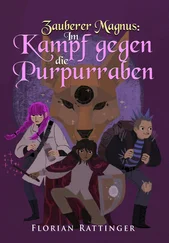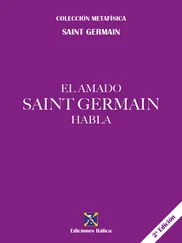Sylvie Germain - Magnus
Здесь есть возможность читать онлайн «Sylvie Germain - Magnus» весь текст электронной книги совершенно бесплатно (целиком полную версию без сокращений). В некоторых случаях можно слушать аудио, скачать через торрент в формате fb2 и присутствует краткое содержание. Год выпуска: 2008, Издательство: Dedalus Ltd, Жанр: Современная проза, на английском языке. Описание произведения, (предисловие) а так же отзывы посетителей доступны на портале библиотеки ЛибКат.
- Название:Magnus
- Автор:
- Издательство:Dedalus Ltd
- Жанр:
- Год:2008
- ISBN:нет данных
- Рейтинг книги:3 / 5. Голосов: 1
-
Избранное:Добавить в избранное
- Отзывы:
-
Ваша оценка:
- 60
- 1
- 2
- 3
- 4
- 5
Magnus: краткое содержание, описание и аннотация
Предлагаем к чтению аннотацию, описание, краткое содержание или предисловие (зависит от того, что написал сам автор книги «Magnus»). Если вы не нашли необходимую информацию о книге — напишите в комментариях, мы постараемся отыскать её.
Magnus — читать онлайн бесплатно полную книгу (весь текст) целиком
Ниже представлен текст книги, разбитый по страницам. Система сохранения места последней прочитанной страницы, позволяет с удобством читать онлайн бесплатно книгу «Magnus», без необходимости каждый раз заново искать на чём Вы остановились. Поставьте закладку, и сможете в любой момент перейти на страницу, на которой закончили чтение.
Интервал:
Закладка:
Insert
Once upon a time … This is how all stories that have never happened begin. Myths, fables, legends.
The story told has dissolved into a distant past, like vegetable matter in marshland, or bodies in humus, giving rise to will-o’-the-wisps that flit through the darkness, skimming the ground. Likewise do the elements of myths and fables act in the obscurity of our thoughts.
Once … an imprecise word referring to a past to which no date can be put. Or the one particular occasion on which an event took place.
Once upon a time … So which is it? A once and for all occasion that did indeed happen or a once of eternal vagueness, for ever unresolved? Its temporal status remains ambiguous.
Once upon a time … A ritual formula that leads into a story, like a little hidden door opening onto an inner courtyard or a secret corridor. But in what sense have they never happened, these stories unrecognized by History, which admits into its corpus only established proven events whose relation to reality is exclusively diurnal. What do we know of what happens in the night time of reality? The imaginary is reality’s nocturnal lover.
The corpus of History is a body — whose flesh is language, words spoken and written — and like all bodies it is opaque, and therefore casts a shadow. Once upon a time is this shadow it produces, a counterpart of more fluid, shifting words and utterances.
Once upon a time : corpus of a deeper, more intense memory than that of History; seedbed of reality, which by morning has forgotten this pre-seeding, retaining only the visible palpable traces of it.
Presently, there are sometimes stray characters who seem for ever to roam reality’s darkness, and who migrate from one story to another, constantly in search of some word that would finally give them full access to life, even at the cost of their own death.
The time may come when characters encounter each other at the intersection of stories that have lost direction, stories yearning for new stories, ever and always.
Fragment O
The summer is nearly over. Brother Jean has not reappeared. He must have been having impish fun among his hives. Magnus hardly gives him any thought, but since that lunch they had together he has no longer felt the need to shut himself up in the barn. More importantly, he is thinking of leaving this place, this solitude. He is ready to move on. The monk was right, he has had his fill of emptiness and seclusion. The heavy silence deposited inside him is beginning to clear, to stir. And this sun-ripened silence, as Brother Jean might say, is impelling him to be on his way again.
He is preparing for his departure, this time in tranquil indifference, no longer in the haste of grief and shame.
They turn up one morning in a sonorous cloud. They fly swiftly through the air, undulating, at the height of a man. Magnus sees this golden brown ball rushing towards him. He takes fright, thinking he is being attacked by a swarm. But the cloud halts one metre from his face. The buzzing is agitated. Magnus recalls what Brother Jean said, that he would send his messengers when the time came. Yet he hesitates to take seriously the hermit’s whimsical promise.
The little cloud hangs there, wavering, buzzing louder and louder, then retreats slightly. Magnus takes a step forward. The bees move away an equal distance. He takes another step forward. The same thing happens. Then he starts walking, resolutely following their lead.
He is led along paths he has never taken before, shortcuts across fields and through groves. His guides move fast, he can hardly keep up. He crosses the river at a point where it is very deeply embanked, via a wooden footbridge that pitches at every step. He enters a forest, comes to a clearing. He recognizes it as the one where he once rested, to which he never found the way back again.
The bees disperse, returning to their hives. Brother Jean is sitting in the middle of the clearing, with his back resting against the mossy niche. He is wearing a voluminous black cape with a gaping hood on the back of his neck. ‘Goodday to you, son!’ he greets Magnus as on every previous occasion. ‘Come and sit next to me.’
Magnus sits down beside him. He says nothing, asks no questions. He waits for his host to start the conversation. But the monk, usually so exuberant, remains silent, and does so for a long time. The forest around them emits a murmur of multiple sounds with the underlying humming from the hives in the background: the rustling of foliage, the swishing of grass, the chirping of insects, the splashing of a stream, the cracklings of dry twigs; little piercing cries or piping calls from the birds; the whistling and sighing of the wind; and now and again the barking of dogs and echoes of human voices in the distance.
Brother Jean looks up at the foliage of a beech tree, and pointing at a few leaves that have just detached themselves and are beginning to fall to the ground, he murmurs to Magnus, ‘Listen!’ The oval-shaped leaves, already brown, come slowly fluttering down. Three of them, caught in a rising air current, hover in the tree-top, like coppery commas dancing in the well of light shafting through the mass of branches. Vagabond commas punctuating in total freedom a luminously unadorned text. But all of a sudden they come tumbling down, the air current having moved on to blow elsewhere.
‘Did you hear that?’ asks Brother Jean.
Magnus has watched this vegetal farandole closely. He can describe it visually but not aurally. The little fellow settles back into silence. Magnus realizes that as long as he is unable to distinguish the soft sigh of a falling leaf against the background of the various sounds of the forest and the basso continuo of the hives, his companion will say nothing. The hours slip by, the air gradually cools. The scene of red leaves falling recurs a countless number of times. So many erratic silent commas.
Magnus gives a slight start, turns his head to the left. His gaze catches the moment a translucent yellow leaf, as fine as an insect’s wing, reaches the ground a little way off from him. His hearing perceived it before his eyes, better than his eyes. ‘I’m listening,’ he says to Brother Jean. But instead of finally breaking the silence Brother Jean pulls the hood of his cowled robe over his head and huddles up, with his hands flat on his knees, his forehead bowed. Thus wrapped in his black chrysalis, he dozes off. His head nods, eventually falling on Magnus’s shoulder. His breathing falters, becomes deeper and slower.
That is all — no blazing light, no agitation in that drowsy body, no throaty rattle or muttering from his lips. Just this breathing rising slowly, amply, from the depths of a body concentrated not on itself but on self-oblivion, on an excavation, a hollowing-out of the self. And this breathing grows lighter, easier. It is as soft and penetrating as the sound of an oboe. A sigh of light escaping from the darkness. A vocal smile quietly ringing in the air. An exhalation of silence.
That is all, but so totally have these two men surrendered to listening to this breathing and so united are they in their surrender, Magnus is overwhelmed by it. This tenuous song wells up as much from his own body as his companion’s, it caresses his flesh under his skin, flows in his blood. This caress felt from inside his body stirs him, amazes him, and engulfs him in himself more powerfully than any caress exchanged in love-making. This very fleeting embrace derives from way beyond anything he has previous experienced. It is radically new, a mental and carnal abduction of thrilling delicacy. It is life itself embracing him from within, and with one impulse he encompasses it with all his senses.
Читать дальшеИнтервал:
Закладка:
Похожие книги на «Magnus»
Представляем Вашему вниманию похожие книги на «Magnus» списком для выбора. Мы отобрали схожую по названию и смыслу литературу в надежде предоставить читателям больше вариантов отыскать новые, интересные, ещё непрочитанные произведения.
Обсуждение, отзывы о книге «Magnus» и просто собственные мнения читателей. Оставьте ваши комментарии, напишите, что Вы думаете о произведении, его смысле или главных героях. Укажите что конкретно понравилось, а что нет, и почему Вы так считаете.












